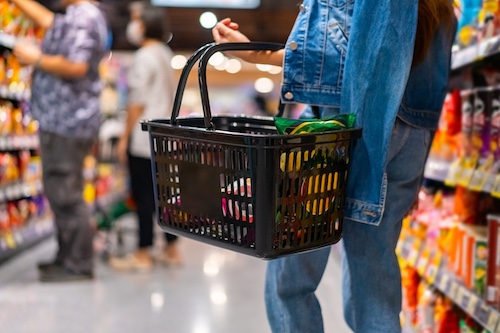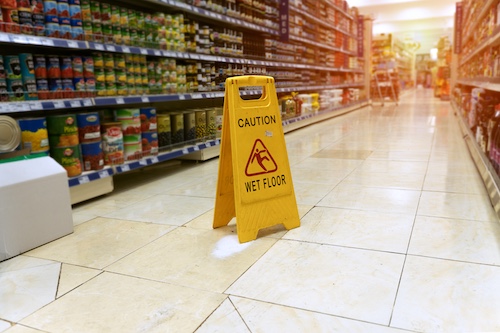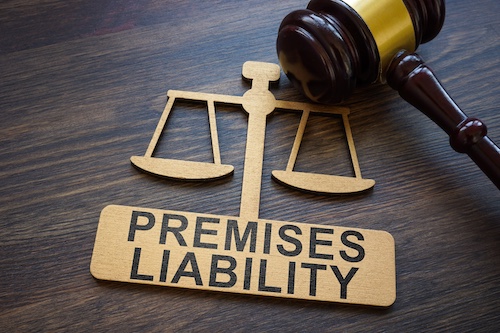Grocery Store Injury: What You Need to Know About Premises Liability in South Carolina
We are McDougall Law Firm, serving Hilton Head and all of South Carolina. We focus on personal injury and premises liability matters. Since 1996, our team has worked with clients to recover medical expenses, lost wages, pain and emotional distress. We offer free consultations and operate on a no‑win, no‑fee basis, meaning you pay nothing unless we win. We strive to negotiate fair settlements with insurance companies—but we are ready to go to trial when needed. Our local presence in Hilton Head ensures accessible support. When you trust us with your case, you get a dedicated team that values transparency, compassion, and results.
A grocery store injury can happen in seconds and leave you with medical bills, lost wages, and long-term pain. If you were hurt while shopping in Hilton Head or anywhere in South Carolina, you may have the right to seek compensation through a premises liability claim. South Carolina law requires grocery stores and property owners to keep their premises safe for customers.
In this blog, you will learn what to do after a grocery store injury, how South Carolina premises liability law applies, and why working with an experienced Hilton Head premises liability attorney can help you pursue full compensation.
Understanding Premises Liability in South Carolina
If you suffered a grocery store injury in South Carolina, you may have a legal right to seek compensation through a premises liability claim.
What Is Premises Liability?
Premises liability is a legal concept that holds a property owner or business owner responsible when someone is injured on their property due to a dangerous condition. Under South Carolina law, specifically S.C. Code § 27-3-60, owners must exercise reasonable care to keep their premises safe for lawful visitors. This applies to grocery stores, retail chains, and any commercial property open to the public.
Duty of Care Owed by Grocery Stores
Grocery stores and their employees have a duty to maintain a safe environment. They must regularly inspect for hazards, fix issues quickly, and warn customers about any known risks. If the store fails to do this, and someone suffers an injury, the store may be held liable. This includes hazards like wet floors, spilled liquids, falling objects, or poorly maintained walkways.
Key Elements in Premises Liability Cases
To succeed in a premises liability case, the injured party must show that:
- The store owed them a duty of care
- The store breached that duty by failing to address a hazardous condition
- That breach caused the injury
- The injury led to damages such as medical bills or lost wages
The store must have known or should have known about the hazardous condition. This is often referred to as actual or constructive knowledge.
Invitee Status and Legal Protections
Most grocery store customers are considered invitees under South Carolina law. This status gives them the highest level of legal protection. Store owners must do more than just avoid causing harm. They must actively inspect and correct any unsafe conditions and warn invitees of known risks.
Common Grocery Store Hazards
Premises liability claims often involve conditions such as:
- Wet or slippery floors
- Spilled food or liquids
- Unsecured displays causing falling objects
- Poor lighting or obstructed walkways
- Negligent store employees failing to clean or warn
Each of these situations can lead to serious injuries requiring medical attention.
Liability and the Role of the Insurance Company
When an injury occurs, the grocery store’s insurance company typically handles the liability claim. Their goal is to reduce payouts. This is why accident victims should avoid speaking with insurance adjusters without a premises liability attorney. Legal representation ensures your injury claim is properly documented and handled, especially if the store disputes responsibility.
South Carolina’s Comparative Fault Rule
South Carolina follows a modified comparative fault rule under S.C. Code § 15-38-15. If the injured party is found partially at fault, their compensation can be reduced. However, they can still recover damages if they are less than 51 percent responsible. This makes collecting and preserving evidence at the accident scene critical.
Common Causes of Grocery Store Injuries
Grocery stores present several risks that can lead to injury if store employees or management fail to maintain a safe environment.
Slippery Floors and Spilled Liquids
One of the most common causes of grocery store injury is a slip and fall caused by wet floors. These hazards often result from spilled liquids, freshly mopped areas, or tracked-in rainwater near entrances. If staff fail to clean the area or post warning signs, customers are at risk of falling and suffering serious injuries.
Falling Objects from Shelves
Improperly stacked merchandise can fall and strike customers. Items placed on high shelves or unstable displays pose a danger, especially when employees overload shelves or fail to secure products. Falling objects can cause head injuries, back injuries, and other trauma.
Obstructed Walkways and Tripping Hazards
Boxes, carts, and loose mats can create tripping hazards in store aisles. If store employees leave clutter in walkways or fail to secure floor coverings, shoppers may fall and suffer injuries. In these cases, store management may be held liable if the obstacle should have been removed or clearly marked.
Inadequate Lighting and Poor Visibility
Poor lighting in store aisles, parking lots, or entrances can hide hazards from view. When customers cannot clearly see where they are walking, the risk of injury increases. Store owners are responsible for providing proper lighting to help visitors avoid dangerous conditions.
Unsafe Entryways and Sidewalks
Cracked pavement, uneven surfaces, or poorly maintained entryways can lead to serious falls before a shopper even enters the store. If a business owner fails to maintain the area outside the store or does not provide a warning, they may be responsible for injuries caused on the property.
Negligent Store Employees
Store employees play a key role in identifying and fixing hazards. When workers ignore spills, leave items on the floor, or fail to report unsafe conditions to management, they increase the risk of customer injury. In many premises liability cases, negligence by store staff is a central issue.
What to Do Immediately After a Grocery Store Injury
Taking the right steps after a grocery store injury can protect your health and support your personal injury claim.
Seek Medical Attention Right Away
Your health is the top priority. Even if the injury seems minor, seek medical attention immediately. Some injuries do not show symptoms until hours later. A medical exam also creates a record that links your injury to the accident. These medical records are important when proving damages in a premises liability case.
Report the Incident to Store Management
Tell the store manager or an employee about the injury as soon as possible. Ask them to complete an official accident report. Request a copy of this incident report for your records. This documentation helps confirm that the accident occurred on the store’s property and that management was informed.
Gather Evidence at the Scene
If you can, take clear photos of the accident scene, including the hazard that caused your injury. Photograph your injuries and the surrounding area. Get names and contact information for any witnesses and store employees nearby. This evidence can be critical if the store or its insurance company disputes your claim.
Preserve Medical Bills and Other Documentation
Keep all paperwork related to your injury. This includes medical bills, prescriptions, physical therapy records, and receipts for out-of-pocket expenses. If you miss work, document your lost wages with pay stubs or employer statements. These documents help your premises liability lawyer calculate the full value of your injury claim.
Avoid Speaking with the Insurance Company Alone
The grocery store’s insurance company may contact you after the accident. Do not give a recorded statement or accept a settlement without first speaking to a premises liability attorney. Insurance adjusters work to minimize payouts. Legal representation can protect your rights and ensure your case is handled properly.
Who Is Liable for a Grocery Store Injury?
Understanding who is responsible for a grocery store injury is key to filing a successful premises liability claim.
The Grocery Store and Its Ownership
In most cases, the grocery store itself is liable for injuries that happen on its property. This includes injuries caused by unsafe conditions the store knew about or should have known about. The legal duty to maintain a safe environment applies to both the store owner and the store’s management. If a store fails to correct a hazard or warn customers, it may be held liable under South Carolina premises liability law.
Store Employees and Negligence
Store employees can also contribute to injury claims. If a worker leaves a spilled liquid unattended, creates a tripping hazard, or fails to report a dangerous condition, their actions may be considered negligent. In these situations, the store is still responsible because it is accountable for its employees’ conduct while they are on the job.
Property Owners and Landlords
Some grocery stores lease their retail space. In these cases, the property owner or landlord may be responsible for injuries that occur in shared areas such as parking lots, sidewalks, or entrances. A premises liability attorney can help identify whether the store, the landlord, or both may be liable based on where and how the injury occurred.
Role of the Insurance Company
The grocery store’s insurance company will often handle the liability claim. Their goal is to protect the business and reduce payouts. They may deny the claim or offer a settlement that does not cover your full losses. A personal injury attorney can help you pursue fair compensation and deal directly with the insurance company.
Proving Liability Under South Carolina Law
To prove liability, the injured party must show that the store or property owner failed to exercise reasonable care. This includes showing that the hazardous condition existed long enough that it should have been fixed or warned about. Documentation related to the accident, such as witness statements and medical records, supports your case.
Consult With an Experienced Hilton Head Premises Liability Lawyer ASAP!
If you or a loved one suffered an injury at a grocery store due to unsafe conditions, do not wait to take action. Our team at McDougall Law Firm has the experience and focus to handle South Carolina premises liability cases and fight for the compensation you deserve.
Contact us at 843-438-4386 for a free consultation today!




